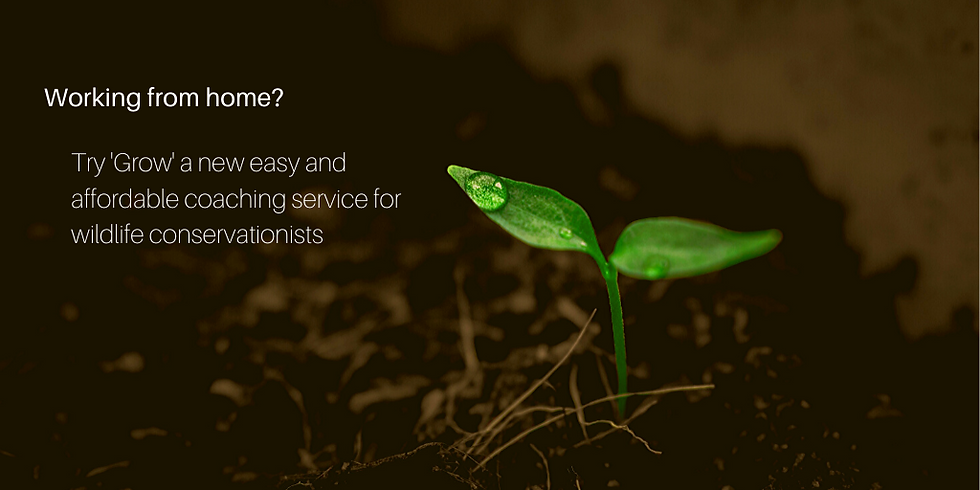Three easy ways you can impress any conservation donor
- Victoria Price

- Mar 18, 2020
- 3 min read
Updated: Oct 28, 2020
Over the last decade, fundraising has changed, and donors want more. They want to know the change their money is actually making and they want value for money which means they really want their funds to have conservation impact.
‘Impact’ is a popular word that has become jargon because it is used to mean all sorts of things but, for me I think in each way the word is used its best interpreted by the catch all phrase ‘bang for your buck’. The only reliable way to achieve this is to have a solid conservation plan on which to base your fundraising proposal.

Tell a story to communicate your project plan
Those ad-hoc proposals rapidly written the night before the deadline often have so many holes that they don’t get funded so they simply end up being a grand old waste of time. Your proposal needs to convincingly tell donors exactly what you will spend their money on, why it will work and what you will achieve. There’s no better way of doing this than telling a compelling story.
All of the most memorable fundraising proposals I have reviewed have a story; a who, what, why, when and how. A good way to structure your story is to base it on a project plan. This will outline key elements of your projects including goals, activities and measures of success. You will find many donors describe this as a ‘theory of change’. A theory of change (a.k.a project plan) comes in many shapes and sizes so can be as diverse as a diagram to a full on log frame. A theory of change is a really powerful way to describe to donors both the change you want to make in the world and the specific steps you will take to get there.
If you look closely you will find that every donor application form, in one way or another, replicates the structure of your project plan so you will be able to quickly and easily describe how any funding request will fit into your bigger picture, without having to reinvent the wheel and write a brand new project for every fundraising proposal.
Know your donor
Creating a theory of change for a project is therefore a great way to strengthen your proposal and make it stand out against the sea of hundreds of other applicants. But creating an over-arching theory of change for all of your projects is even more powerful. It allows you to split your planning into blocks of work which will all appeal to different donors and make your fundraising approaches both strategic and more effective.
That’s because each donor is looking for certain things and all of them have different priorities, sometimes these will be explicit and sometimes they will be unknown. Doing your research on your donor is critical. Those applications that don’t align closely with what the donor has named as their priorities are almost certainly self-selecting themselves for the ‘no’ pile. Most foundations get hundreds of requests for each round of funding so you need to be able to match their priorities and, write a killer proposal (see above).
Cultivate your relationships
Ultimately, donors really want their funding to work and benefit the world so they want to support the right people. Therefore, if you can, it’s always advisable to develop a personal rapport with each of your donors. This will help to familiarise them with you and your organisation and to build trust. Different levels of interaction will be appropriate depending on the size of the grant but if you can give the grant administrator a call or drop them an email to ask an intelligent question, then do it!
Building a relationship with your donor becomes even more important after being awarded f. That’s because building a good relationship and a building trust is vital to ensure donor retention (i.e. keeping the support of your existing donors). That means keeping your donor ‘in the loop’ even if things aren’t going right (in fact it’s even more important to do if things aren’t going right)!
Communicating your project plan, researching your donor and cultivating good relationships with foundation staff can go a long way to ensuring your proposals’ are ultimately successful. These skills will likely prove even more important as smaller foundations develop and professionalise. Learning strategic skills such as theory of change, relationship management and improving your fundraising strategy will hep you stay one step ahead of the crowd.








Comments